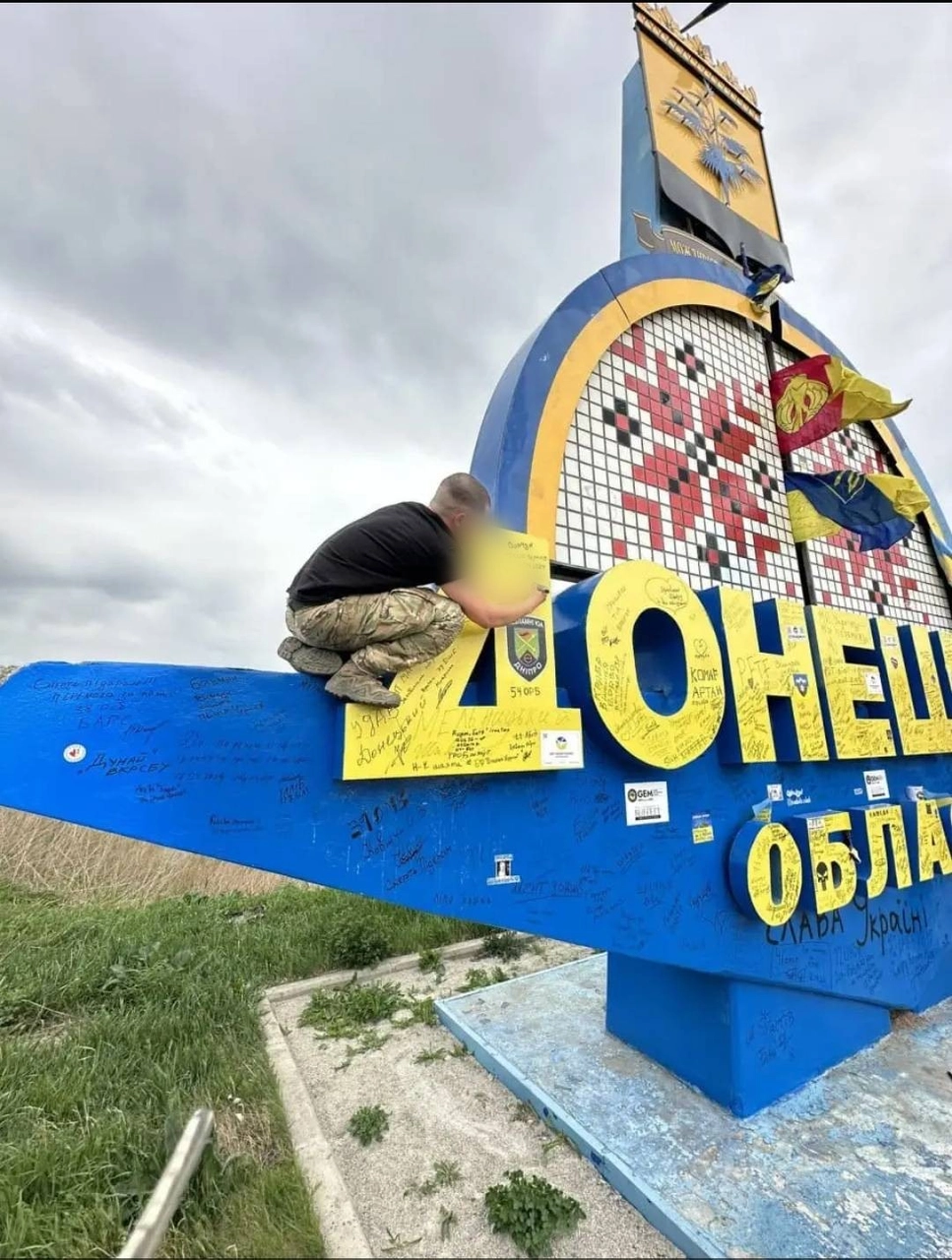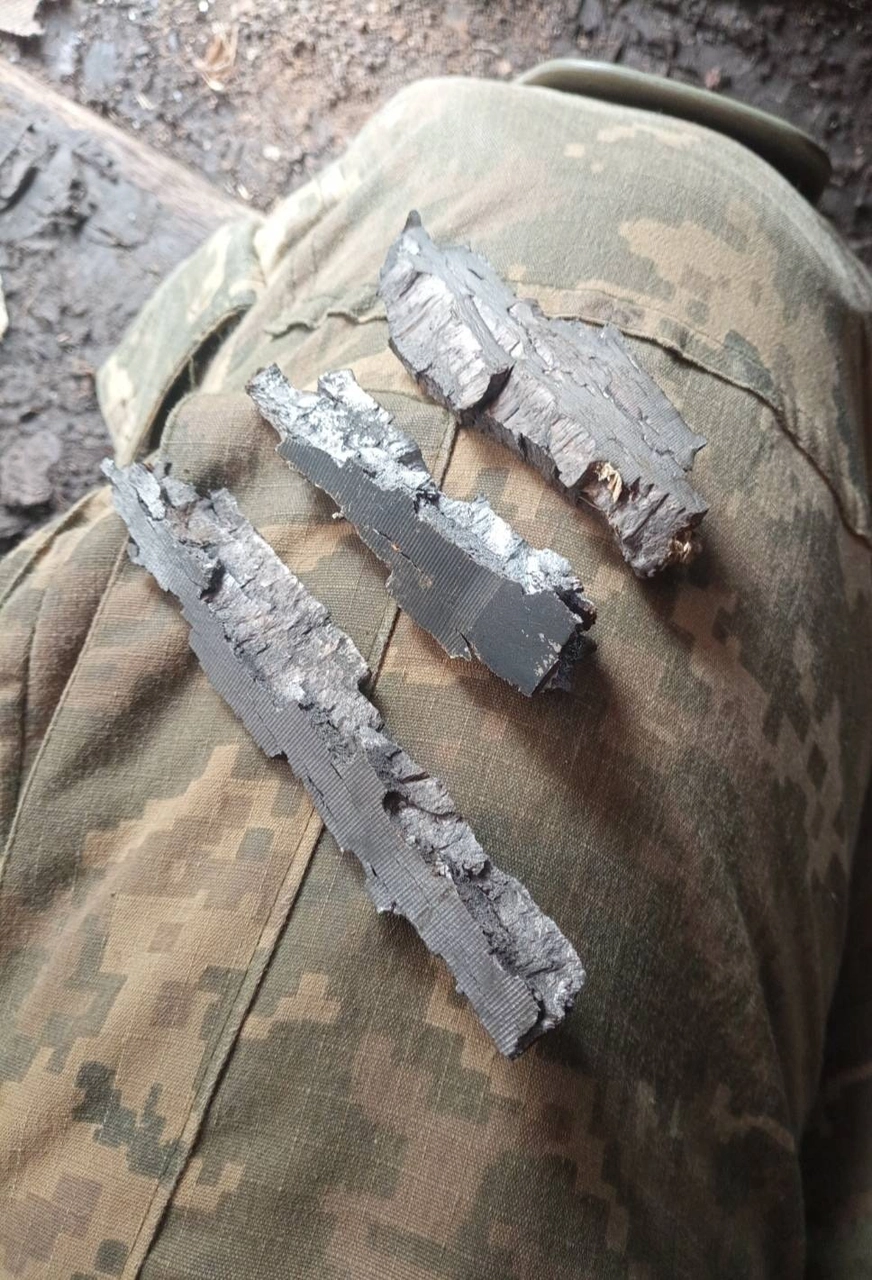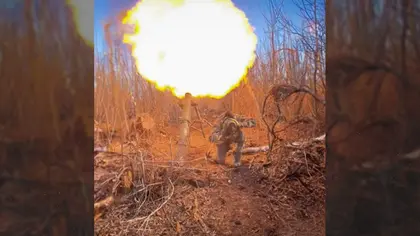A Ukrainian platoon commander of a mortar battery with the call sign “Grynya,” currently fighting in Donbas, told Kyiv Post that the Ukrainian military possesses an ample supply of mines to deter and repel Russian assaults, but highlighted the need for ammo and Kremlin forces increased use of FPV drones to direct artillery fire.

JOIN US ON TELEGRAM
Follow our coverage of the war on the @Kyivpost_official.
“There are no restrictions on usage,” said the servicemember, highlighting the crucial distinction that Ukrainian defenders cannot afford to engage in indiscriminate firing, unlike their Russian counterparts.
Grynya said that such indiscriminate firing involves continuously shooting in random directions, aiming to restrict enemy movement and maintain pressure on Russian troops.
However, he acknowledged a concerning trend of ammunition shortages within air defense forces, citing recent missile attacks that inflicted damage on critical infrastructure.
In Grynya’s assessment, “This is evidenced by the hits on critical infrastructure during recent missile attacks.”
Last week, President Volodymyr Zelensky stated that the Russians managed to destroy the Trypillya thermal power plant due to Ukraine’s complete depletion of missiles to defend it, compounded by a lack of assistance from allies.

Zelensky: ‘Putin Fears Talks, Strong Leaders’ as Trump Pushes for Ukraine Deal
“As for artillery, everything is relative,” said the mortarman. “Last summer, while supporting our infantry in Bakhmut, we fired much more abundantly.”
“But battles in open fields versus urban environments cannot be compared. Then the skies were clearer with fewer drones, allowing for bolder actions. Various factors such as terrain, weather, and logistics play significant roles,” he added.
Grynya stressed that the intensity of firing depends not only on the quantity of mines.
When asked about changes in Russian tactics, the Ukrainian military officer explained to Kyiv Post that with the arrival of warmer weather, the number of “enemy wings” (Russian drones) in the sky has increased, likely aided by clearer weather, resulting in heightened Russian shelling.

“In winter, the skies were mostly cloudy, with snow, rain, and fog, leading to less frequent flights,” Grynya said.
According to him, the Russian forces experience near Avdiivka demonstrated the effectiveness of using guided aerial bombs, leading to their increased utilization. However, Ukrainian forces suffer their greatest losses from Russian barrel artillery and FPV drones.
Grynya, who in civilian life played in a punk rock band, initially served as a machine gunner when the Russian full-scale invasion began.

“I had some experience fighting with a Kalashnikov machine gun in Severodonetsk. Later, our battalion received mortars. My commander, an artilleryman, ended up forming a mortar battery with us,” the serviceman said.
According to Grynya, there is a significant shortage of personnel on the front lines. He revealed that every military profession requires specific skills and knowledge, and being a mortarman is no exception.
“Are there many volunteers willing to become mortarmen? No, otherwise, there wouldn't be such an urgent need for personnel,” he told Kyiv Post.
“For age considerations - in territorial defense (teroborona), which is more of a collective hodgepodge, there's about the same number of young and older specialists,” Grynya said. “Perhaps, the statistics differ in the other units.”
The military man revealed that the most significant targets he has hit during his service are a Russian dugout containing ammunition and another dugout housing personnel.
You can also highlight the text and press Ctrl + Enter










